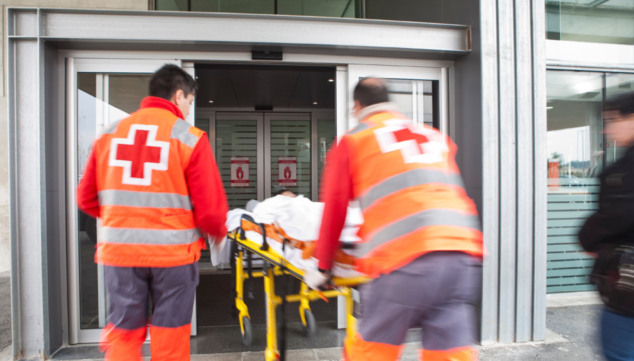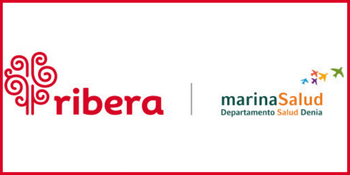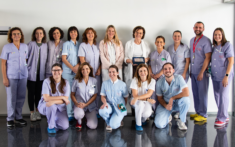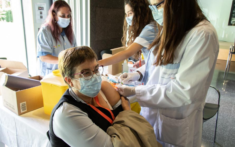- As a result of the cases of contamination of prepared tortillas, specialists from the Hospital de Dénia explain that any preparation of preserves without correct hygiene favors contamination by bacteria clostridium botulinum
- Remember that the most frequent are those produced by bacteria such as Salmonella, Campylobacter, E. coli or Listeria, which cause symptoms such as nausea, vomiting, abdominal pain, diarrhea, malaise or fever
Specialists of Hospital de Dénia, from the Ribera Sanitary Group, recall that the food poisoning They can be caused by infectious agents such as bacteria, viruses and parasites. Also due to its toxins, which contaminate the food we consume, especially due to uncontrolled heat and poor handling, by breaking the cold chain or by neglecting hand and utensil hygiene measures. This is how he explains it Dr. Antonio Valdivia, Head of the Preventive Medicine Service of the Dénia Hospital, who ensures that the main focus of food poisoning that occurs at this time of year.
As a result of the cases of botulism, linked to the consumption of a brand of prepared potato tortilla, the Dr Valdivia ensures that "any preparation of preserves without correct hygiene, favors the contamination of these by the bacteria clostridium botulinum which, if not removed by heat or inhibited by a sufficiently acidic pH, can reproduce and generate the toxin."
Professionals from the Dénia Hospital have taken advantage of the recent cases of food poisoning registered in different parts of the Spanish geography, as well as some others in which the source of the health problem was contaminated water, to remember the main causes of food or water contamination this summer. The Head of Preventive Medicine of the Department of Health of Dénia stresses that, according to data from RENAVE (National Network for Epidemiological Surveillance), "the most frequent outbreaks are those caused by salmonella, followed at a distance by those caused by histamine or N, and the most frequently implicated foods are those that contain egg products». Campylobacter, E. coli or Listeria poisoning proliferate excessively in poorly cooked or preserved food and can lead to poisoning with symptoms such as nausea, vomiting, abdominal pain, diarrhea, malaise or fever.
However, the condition can vary from patient to patient. «The same intoxication in a group of people can produce very mild symptoms, no symptoms or serious illness and even life-threatening in other more vulnerable, depending on the amount of spoiled food ingested and other individual factors, such as age or the state of health”.
For doctor Valdivia, before the manifestation of digestive symptoms, "the most important thing is to ensure that a correct hydrationTherefore, any case of poisoning that prevents fluid retention, due to vomiting or diarrhea, must be urgently evaluated by a doctor. Specifically, it recalls that "cases with more than 10 daily bowel movements of soft and watery stools are considered severe diarrhea", and adds that the presence of mucus or blood in the stool "also points to a serious condition that must be urgently assessed by a specialist, as well as any sign of significant dehydration such as dizziness, hypotension or decreased level of consciousness in the most severe cases.
La recommendation In summer, avoid eating foods such as undercooked meat, especially minced meat, unpasteurized dairy products, or products that contain raw eggs, such as tortillas without curdling or mayonnaise. In the same way, care must be taken with the intake of vegetables that are eaten raw and unpeeled, rice or other stews prepared in advance and not cooled, or ready-to-eat foods, which we do not know if they have respected the proper storage conditions.
The recommendations of the Ribera group specialists for avoid food poisoning in summer they are:
- Maintain good hygiene of hands, utensils and food handling surfaces, as well as properly wash fruits and vegetables
- Cook food properly and at a sufficient temperature
- Avoid breaking the cold chain or leaving raw or cooked food at room temperature
- Do not use non-potable water for consumption or food preparation
- Avoid eating food that looks bad, with deteriorated packaging, or that has lost its vacuum, as well as refreezing previously thawed products
- Avoid contact of raw food with cooked food
- Pay attention to the hygiene conditions of the establishments
- Avoid contact of food with insects or other animals
After the cases registered, for example, in Valencia, with the contamination of various children in ponds and fountains in an urban park, Dr. Valdivia recommends ensuring that the water is subject to the pertinent sanitary controls and that minors do not bathe or play with water that is not scheduled for the year.









